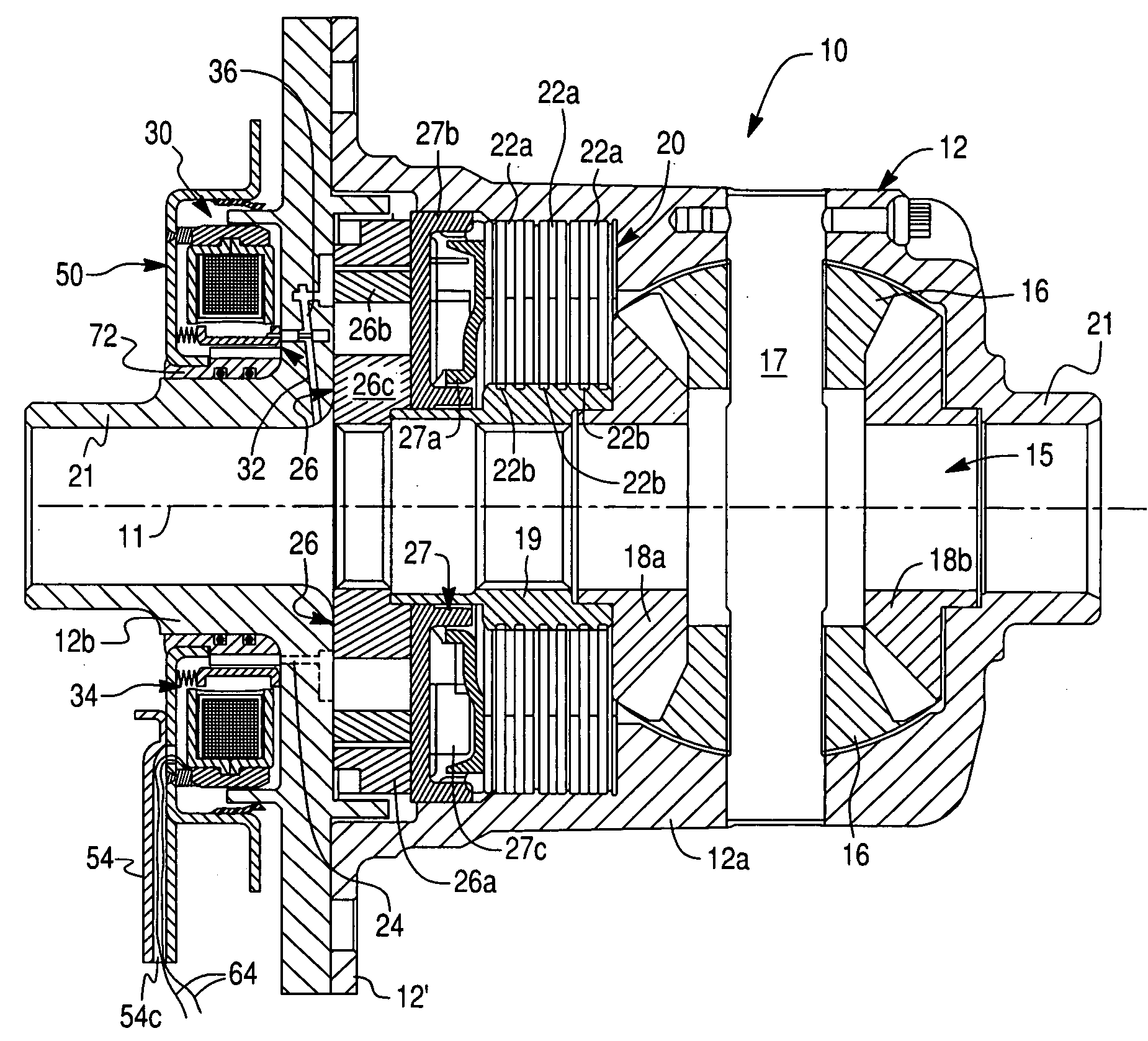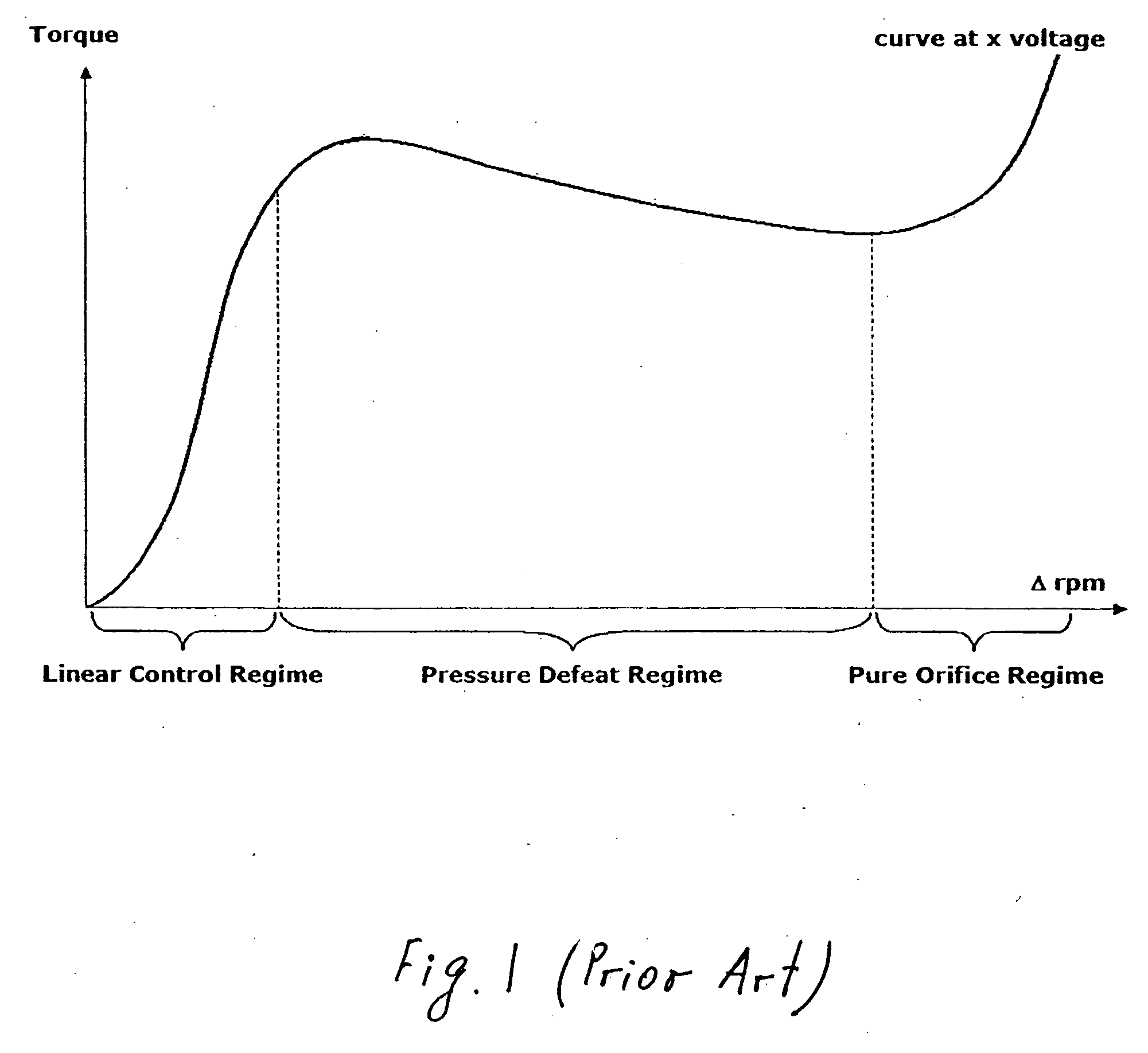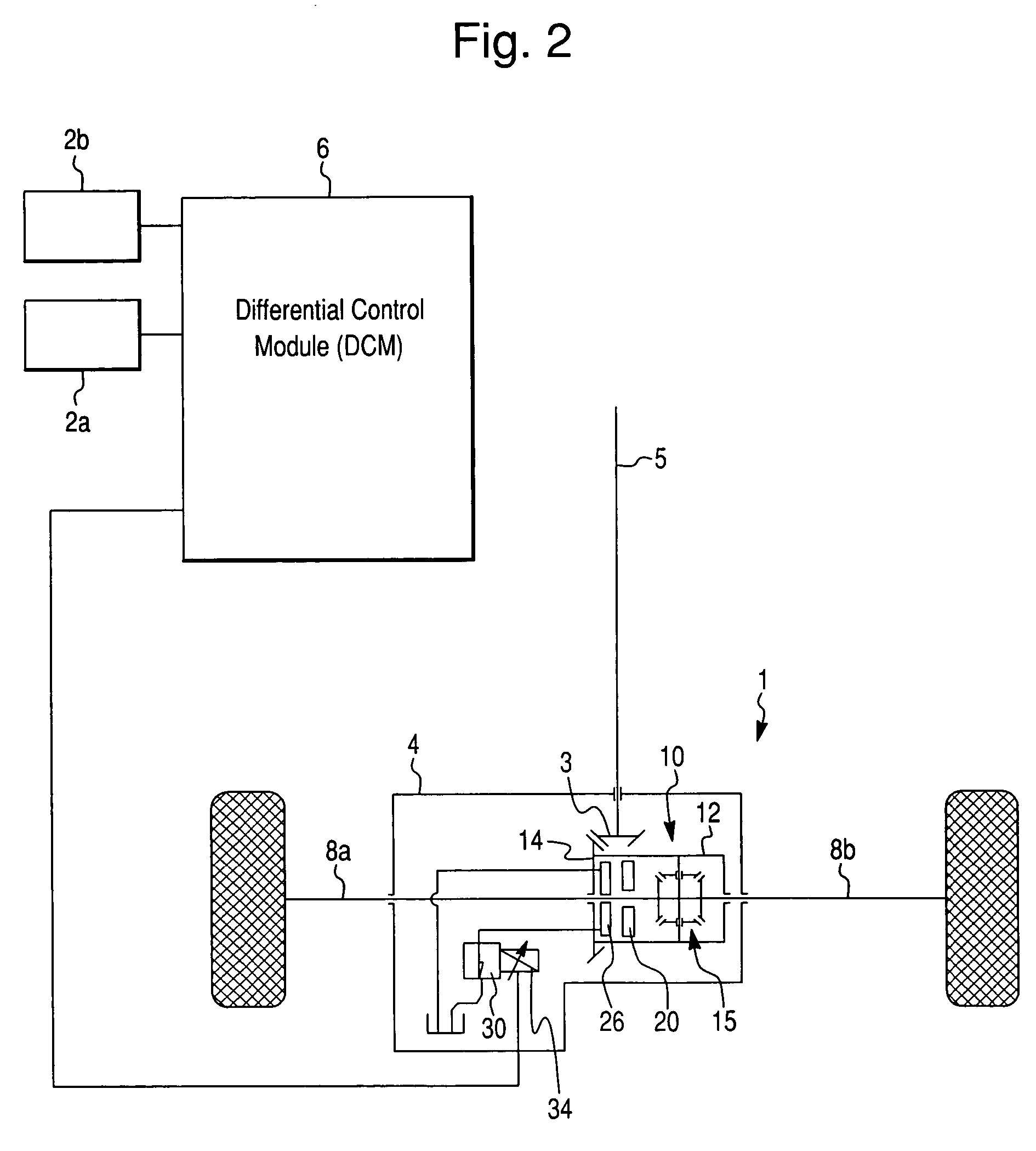Electro-magnetic actuator for torque coupling with variable pressure-control spool valve
a torque coupling and variable pressure technology, applied in mechanical equipment, transportation and packaging, gearing, etc., can solve the problems of loss/draining of centrifugal fluid from the pump and the piston, failure of the differential system in terms of time delay and abrupt engagement, and loss of controllability of medium-to-high-speed handling maneuvers. achieve the effect of less amount and more accurate pressure control
- Summary
- Abstract
- Description
- Claims
- Application Information
AI Technical Summary
Benefits of technology
Problems solved by technology
Method used
Image
Examples
Embodiment Construction
[0026] The preferred embodiment of the present invention will now be described with the reference to accompanying drawings.
[0027] For purposes of the following description, certain terminology is used in the following description for convenience only and is not limiting. The words “right,”“left,”“lower,” and “upper” designate directions in the drawings to which reference is made. The words “outermost” and “innermost” refer to position in a vertical direction relative to a geometric center of the apparatus of the present invention and designated parts thereof. The terminology includes the words above specifically mentioned, derivatives thereof and words of similar import. Additionally, the word “a,” as used in the claims, means “at least one.”
[0028] The present invention is directed to a hydraulically actuated torque coupling assembly including a hydraulic fluid pump, such as a hydraulically controlled limited slip differential (LSD) assembly indicated generally at 10 in FIGS. 2 and...
PUM
 Login to View More
Login to View More Abstract
Description
Claims
Application Information
 Login to View More
Login to View More - R&D
- Intellectual Property
- Life Sciences
- Materials
- Tech Scout
- Unparalleled Data Quality
- Higher Quality Content
- 60% Fewer Hallucinations
Browse by: Latest US Patents, China's latest patents, Technical Efficacy Thesaurus, Application Domain, Technology Topic, Popular Technical Reports.
© 2025 PatSnap. All rights reserved.Legal|Privacy policy|Modern Slavery Act Transparency Statement|Sitemap|About US| Contact US: help@patsnap.com



